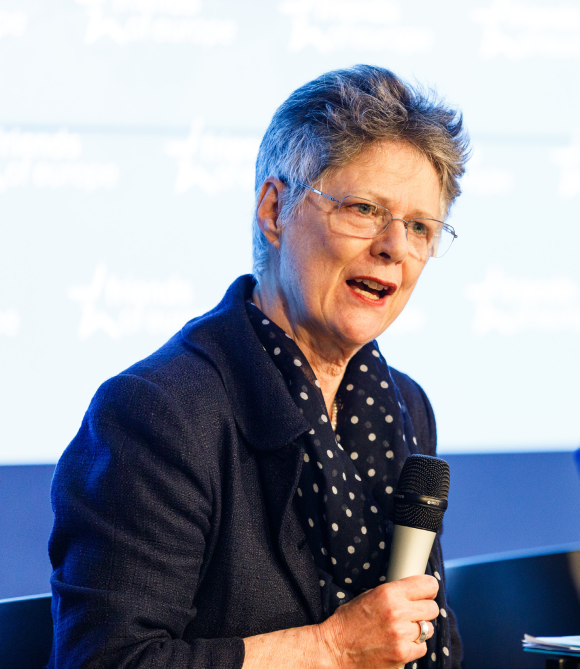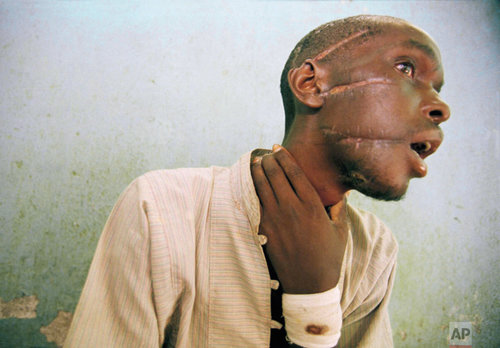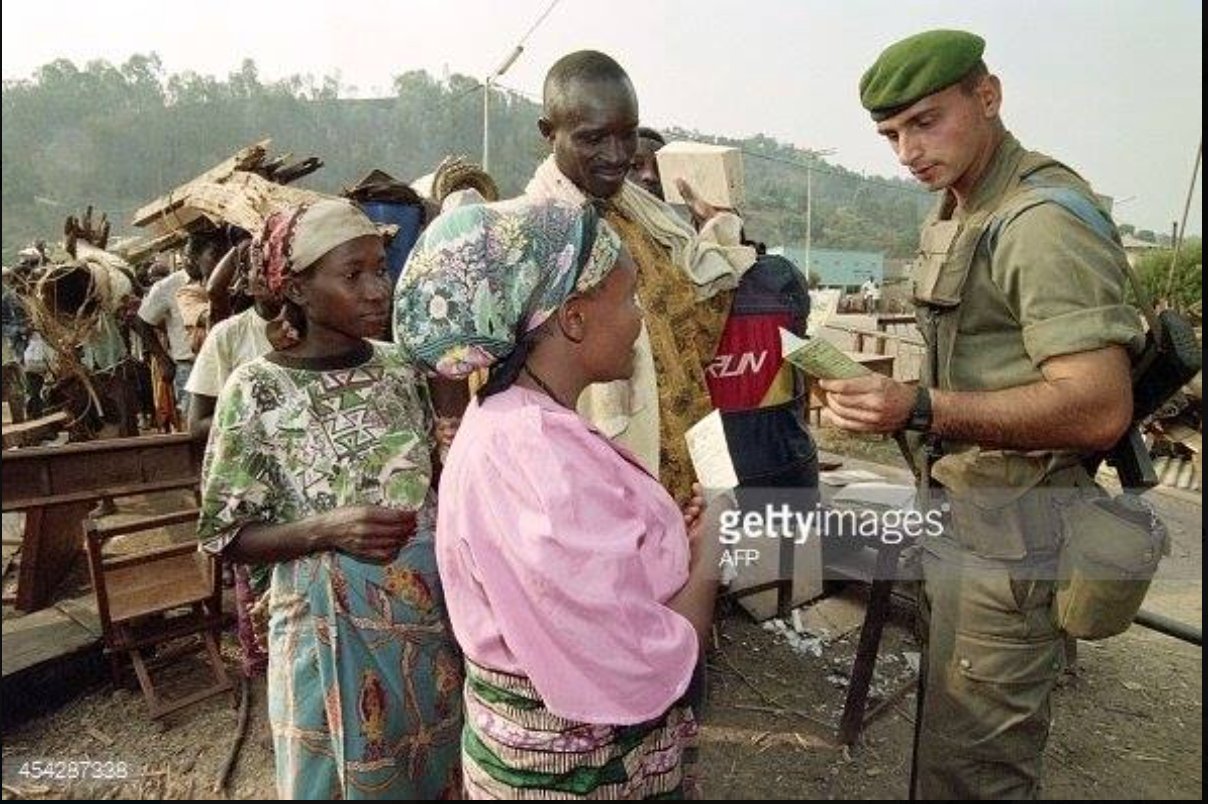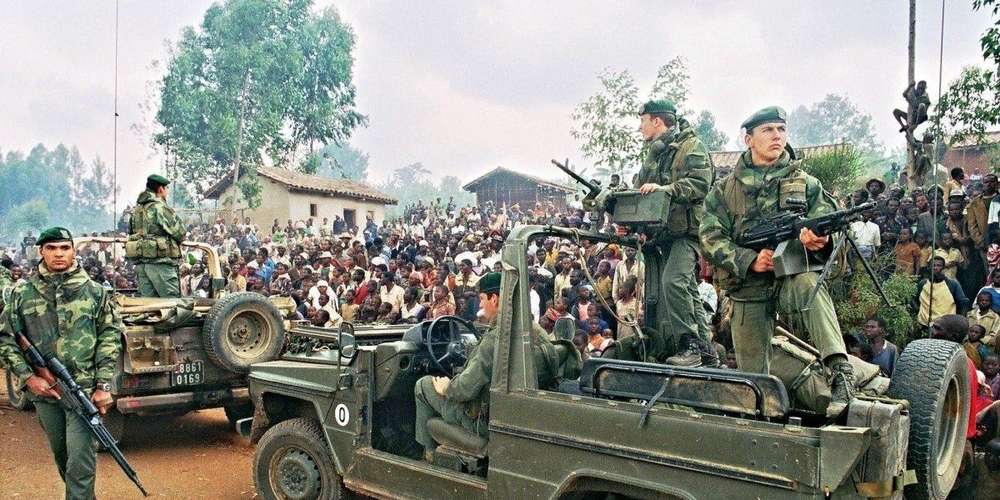Regional
Exposing Genocide deniers and their deceit

Linda Melvern; author and journalist, has extensively researched on the Genocide against the Tutsi
As we approach the 27th Commemoration of the 1994 Genocide against the Tutsi, Rwandans and friends of Rwanda abroad continue to fight Genocide deniers and their atrocious falsehoods.
It is in this
spirit that on March 29, Ibuka Memory and Justice in Belgium, an umbrella
organization of genocide survivors organized a virtual symposium where experts
were invited to expose individuals and organisations behind genocide denial and
revisionism.
British
journalist and author Linda Melvern who has extensively researched on the
Genocide against the Tutsi and written books - the most recent is "Intent
to Deceive: Denying the Genocide of the Tutsi (Version 2020)" - noted that
despite the incontestable evidence of the 1994 Genocide, it is still subjected
to an intense propaganda campaign aimed at distorting facts, and promoting
disinformation.
The people behind this genocide denial campaign have a lot in common, she observed. They willingly distort the truth and promote disinformation. Proponents of genocide revisionism are determined to minimize and obscure the Genocide against the Tutsi.
According to
Melvern, the influence of Hutu Power - a racist and ethnosupremacist ideology
propounded by Hutu extremists before and during the Genocide against the Tutsi
- and its racist ideology persists today.
Many of the
leaders of this ideology fled from Rwanda after masterminding the Genocide,
thanks to the help of French troops in the zone of Opération Turquoise - a
French-led military operation in Rwanda in 1994 under the mandate of the United
Nations - and they now live comfortably in foreign capitals. It is these
genocide ideologues in exile that finance and prop up terrorist groups such as
the Democratic Forces for the Liberation of Rwanda (FDLR).
The area of
French influence, known as Zone Turquoise, within the then
Cyangugu-Kibuye-Gikongoro triangle, was spread across a fifth of the country.
Witnesses
including Guillaume Ancel, a former French military officer and author who has
published books on foreign military operations in Rwanda questioning the
actions of France in Rwanda during the 1994 Genocide, say that Operation
Turquoise - which he participated in - was not a humanitarian operation but a cover
to try to put the Genocide masterminds back to power.
Melvern noted
that the genocide deniers and their accomplices pretend that there are two
versions of the story of the Genocide against the Tutsi. They propagate that
the first one, which is commonly accepted, is the one made in Kigali by the
victorious Rwandan Patriotic Front (RPF).
The distorted
version, promoted by Canadian journalist Judi Rever, claims that the RPF itself
triggered the Genocide by assassinating President Juvenal Habyarimana, thus violating the
Arusha Accords to seize power well knowing that the Tutsi population would be
in danger. Rever even alleges that the RPF was not ready to stop the Genocide
because its goal was to win the war.
Rever even claims
that RPF infiltrators killed the Tutsi at roadblocks. The motive, she
shamelessly alleges, was to attract sympathy and get foreign support.
Regrettably,
Rever’s book, "In Praise of Blood," is published by a big Canadian
Publishing House, Penguin Random House, despite being all built on treacherous
deceit.
Worse still,
British journalist Michella Wrong has joined Rever in peddling genocide denial
and revisionism. Wrong lobbied and
attracted the interest of big newspapers in England such as The Guardian who
are ready to help her distort the truth, peddle lies and deny the Genocide
against the Tutsi.
“From my point of
view, it is evident that different journalistic standards are applied when it
is about Africa. Serious allegations contained in those books could not be
levelled against any leader, any government in Europe based on rumors,
uncorroborated evidence, hear-says, approximation and lies,” stressed Melvern.
Wrong plans to
publish her venomous book, “Do Not Disturb” on April 13 during the initial
Commemoration week. Rever and Wrong’s
blatant lies are in line with the BBC's 2004 documentary “Rwanda: The Untold
Story”, which stated that the RPF might have triggered the Genocide, and did
nothing to stop it.
Shockingly, the
documentary ignores the eventuality of a coup d’état by the Hutu Power
extremists. It does not mention Théoneste Bagosora - a key architect of the
1994 Genocide.
Unfortunately,
the BBC continues to ignore the fact that the true account of the Genocide was
not invented but is based on a mass of documents and testimonies which are
easily accessible. Excerpts of the BBC’s infamous documentary are still
available on its website as a document challenging the official version. The
documentary has emboldened genocide deniers.
Melvern recalled
that the narrative pushed by the BBC is the same pushed in 1994 by Rwandan
diplomats in the corridors of the UN. At the time, Jean Damascene Bizimana who
was Rwanda’s Ambassador to the United Nations blamed the Genocide on the anger
of the population caused by the alleged killing of Habyarimana by the RPF.
Bizimana held a non permanent seat on the United Nations Security Council
during the Genocide.
In France,
Belgium, Canada, the US, Britain, and elsewhere, professors and journalists
continue to defend genocidaires and allege that the victims of the tragedy were
responsible for it. Melvern observed
that, for nearly a decade, many UN member states pledged to fight genocide
denial and revisionism but few have done what they agreed to do.
The good work of
people like Melvern, dedicated to exposing genocide deniers and their
supporters, must be appreciated.




